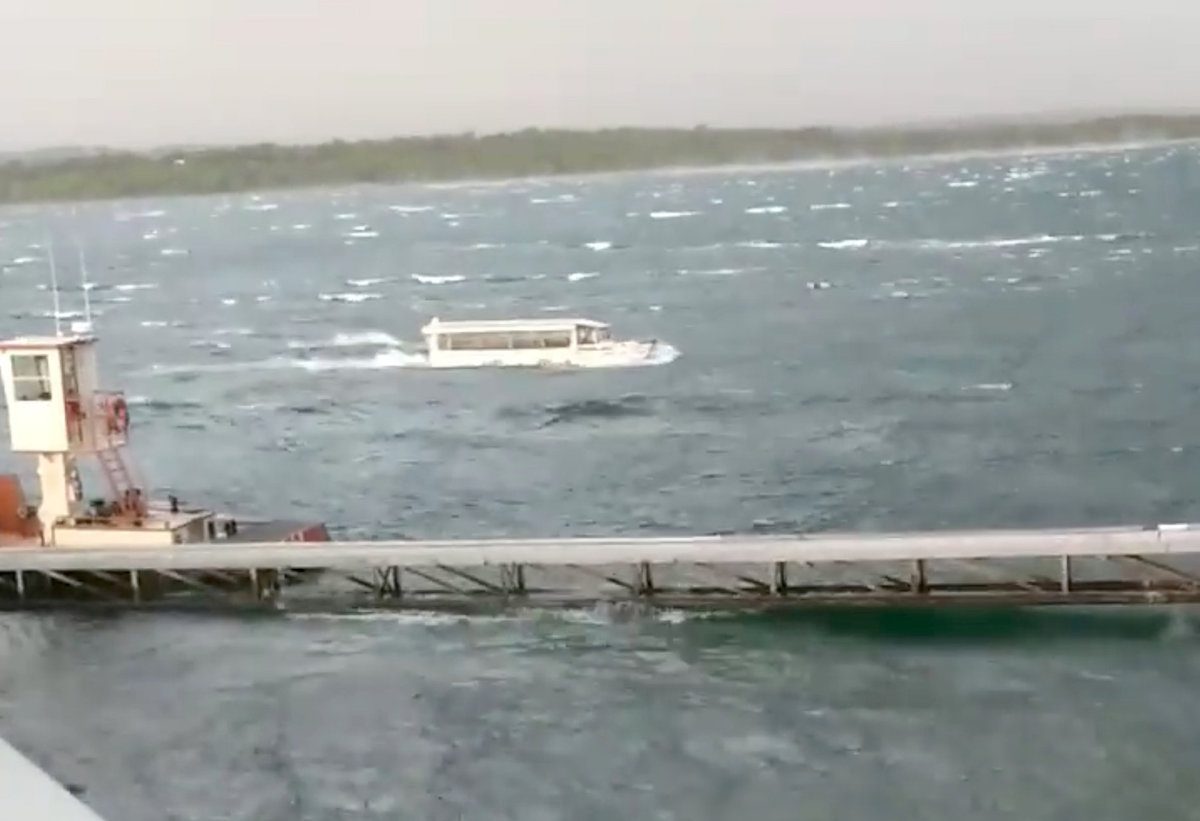National Transportation Safety Board Chair Jennifer Homendy welcomed much-needed maritime safety improvements included as provisions in the $858 billion annual defense spending bill, which President Biden signed into law Friday.
The James M. Inhofe National Defense Authorization Act for Fiscal Year 2023 advances NTSB recommendations for amphibious vessels, known as DUKW boats, and requires the U.S. Coast Guard to provide an initial response to new NTSB recommendations within 90 days.
DUKW boats, also known as duck boats, were designed and built in the 1940s for military use during World War II. Some were later converted for commercial service. The unique vessels comes with special challenges that must be addressed to ensure passenger safety, such as requiring greater reserve buoyancy, canopy removal and other modifications before waterborne operations and training for crews.
The NTSB first identified safety issues with the vessels in 1999 with the sinking of the Miss Majestic in Hot Springs, Arkansas where 13 lives were lost, recommended corrective actions that were never acted on. The NTSB made recommendations again following the 2018 sinking of the Stretch Duck 7 in Branson, Missouri? where another 17 lives were lost.
“We applaud lawmakers for their bold action to improve DUKW boat safety, something the NTSB has been concerned about for more than 20 years,” said NTSB Chair Jennifer Homendy. “But it shouldn’t take an act of Congress to address known safety issues for any vessel, and it certainly shouldn’t take decades.”
The NDAA mandates that the U.S. Coast Guard initiate rulemaking within six months requiring:
- Reserve buoyancy through passive means and watertight compartmentalization;
- Identification of limiting environment conditions, such as weather, in which DUKWs may safely operate;
- Proceeding to harbor in case of wind warning;
- Maintaining and monitoring weather radio;
- Informing passengers not to wear seatbelts in water, performing visible seatbelt checks and maintaining a log recording actions; and
- Annual training for operators and crew.
The legislation includes an interim requirement, within 180 days, to require removal of canopies and window coverings, require passengers wear life vests, reengineer vessels to minimize hull penetrations and require bilge pumps and LED lighting.
The legislation also brings the U.S. Coast Guard in line with Department of Transportation agencies, which are required to respond to new NTSB recommendations within 90 days.
“The reporting requirement increases transparency and ensures accountability on NTSB safety recommendations by the U.S. Coast Guard, which as the marine industry regulator, is best positioned to improve safety,” Homendy said.

 Join The Club
Join The Club










